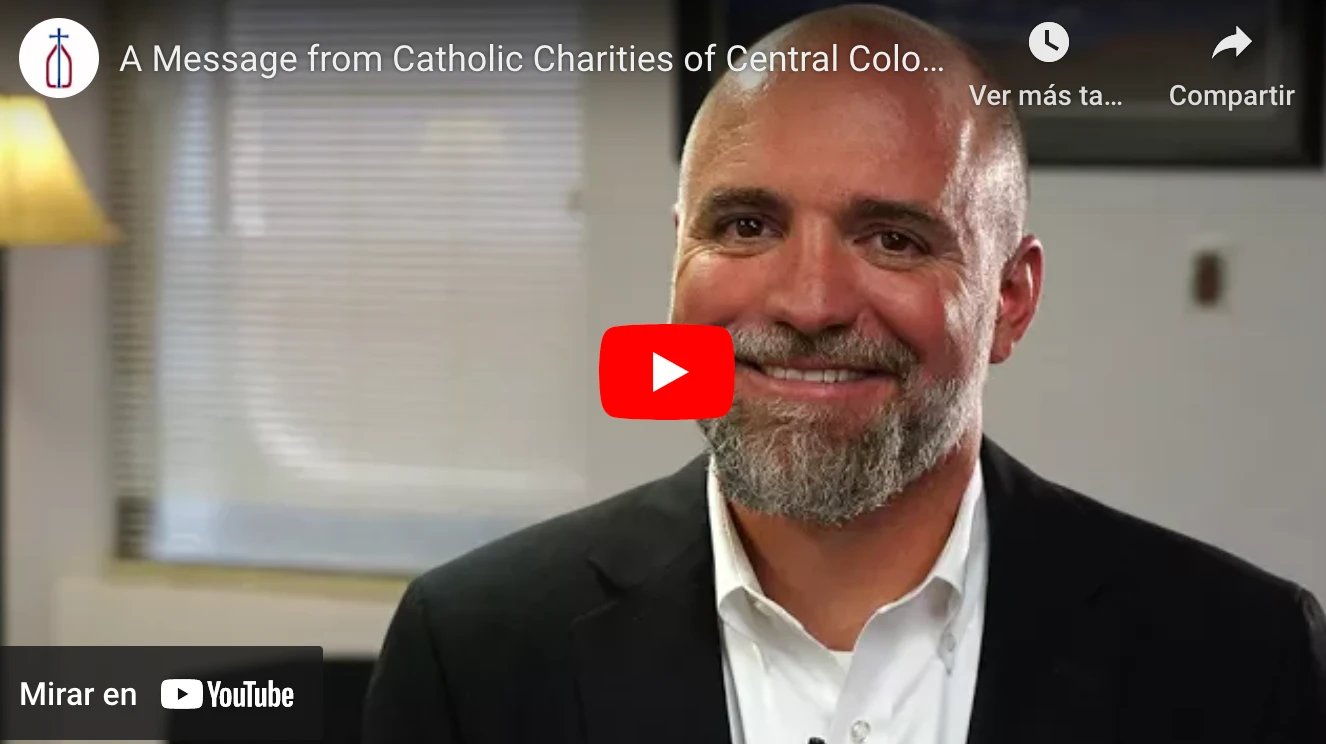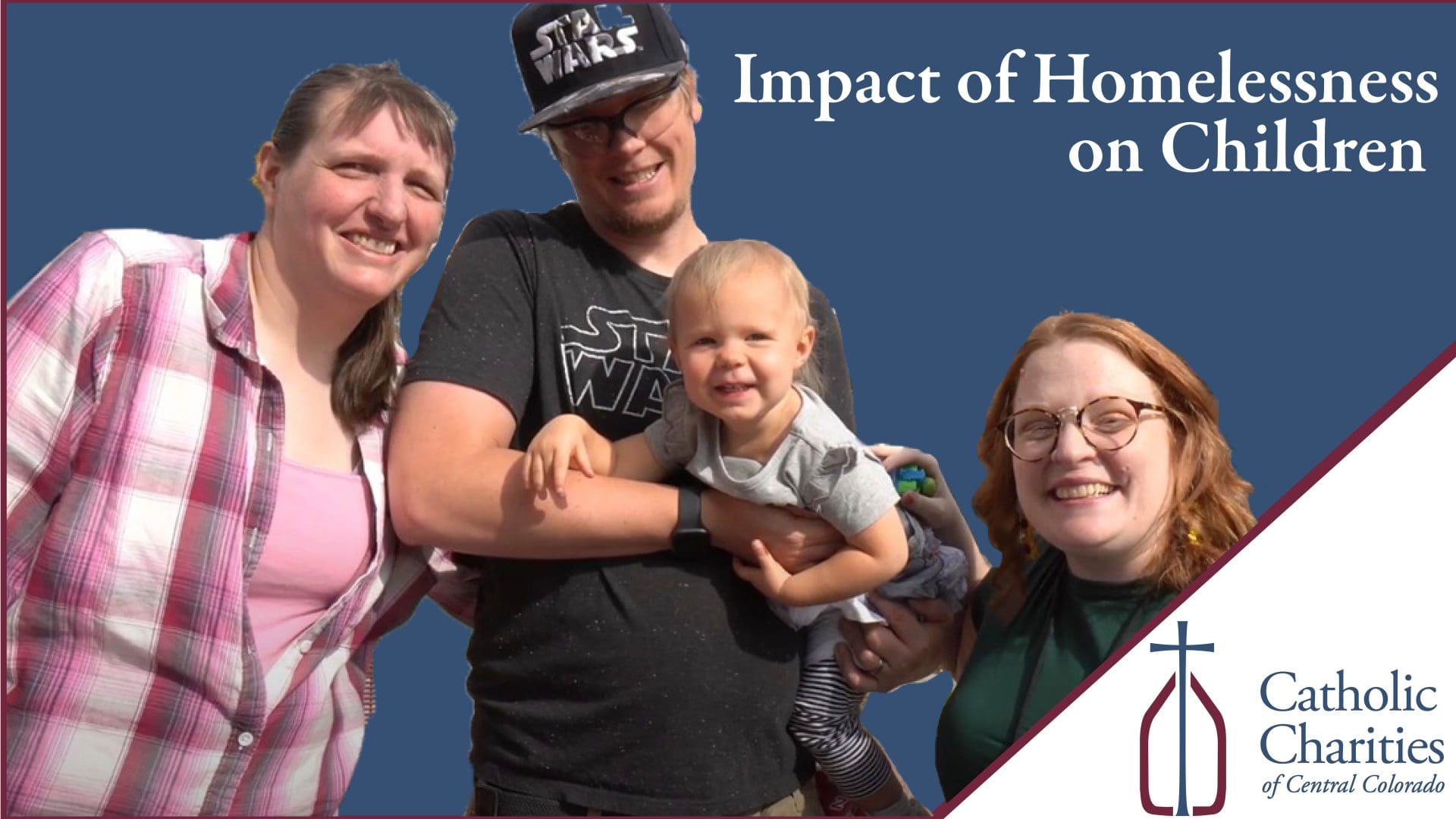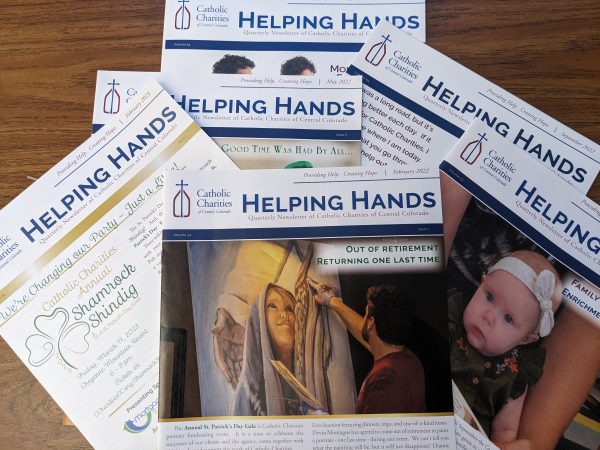
BY ANDY BARTON
Somehow, I have been expecting some event that would get things back to normal. Last spring, I thought it would be the arrival of warm weather. Later, I thought it would be the fall when children returned to school. Recently that new marker was Christmas, with a vaccine approved for use. But this past Sunday, as I looked around at yet another socially distanced Mass, I finally accepted that no such event was coming. We will not, one Sunday all of a sudden, start sitting next to each other in pews, without masks like we did last February.
Mass has been one of the sharpest reminders for me of the changes forced by the coronavirus. What stands out most is the change to the offering of peace at the beginning of the Communion Rite: That moment when we used to seek out the family, friends, and strangers around us to wish them peace. Regardless of politics, gender, age, color, or potential health risk, we touched hands or embraced. That this beloved part of the Mass has been sidelined is a stark symbol of what this pandemic is taking from us: it is, in so many ways, distancing us from each other.
There is nothing malicious, judgmental, political, or violent about COVID-19. The question I ask myself is why has it brought these traits out in our society? One thought in answering this question comes from Taiichi Ohno. Ohno was a Japanese industrial engineer who inspired the Lean Manufacturing Strategy during his time at Toyota from 1943 – 1978. Ohno’s approach to problem-solving held that asking the simple question “why” five times, would reveal the nature of a problem, thereby illuminating a solution. In other words, you do not magically fix a problem; instead, you find the conditions under which the problem manifests itself. All the troubles we are facing today, from COVID-19 and racial tensions to the partisan fighting that is dividing our nation, are responses to something more fundamental. Here is a suggestion on the “five whys” of the times we find ourselves facing.
Why has COVID-19 been so devastating to our social fabric? Because society is divided on everything from wearing masks to racial injustice to the upcoming elections. Why are we divided? Because we are angry. Why are we angry? Because we feel vulnerable. And why do we feel vulnerable? Because we are afraid. Afraid of getting sick and dying. Afraid of losing jobs or savings and investments. Afraid of losing housing. Afraid of law enforcement. Afraid of the other Presidential candidate. There is so much to fear.
Fear, however, is only the fourth “why.” The final level is the one that gets at the root cause and for this, it might be best to look at 1 John 4:18: “There is no fear in love, but perfect love drives out fear because fear has to do with punishment, and so one who fears is not yet perfect in love.” Love is not going to find a vaccine, right wrongs of the past, or fix the economy; but love can guide the way that human beings start to deal with these issues.
This is not some naïve attempt to convince people to care for one another. This idea is, in Pope Benedict’s words, “the heart of the Christian faith.” Writing in the encyclical Deus Caritas Est, Pope Benedict goes further: “We have come to believe in God’s love: in these words, the Christian can express the fundamental decision of his or her life.” The fundamental importance of love goes back to Saint John’s letter: “If anyone says, “I love God,” but hates his brother, he is a liar; for whoever does not love a brother whom he has seen cannot love God- whom he has not seen.”
I pray that people of faith will embrace these words in the weeks to come. As Christians, we are called to love those who are poor and those who are wealthy. Love police officers and criminals. Love undocumented immigrants. Love Democrats, Republicans, and Independents. We can have our disagreements, but the moment we stop loving each other, we move away from the very heart of our Christian faith, which is, and should be, the answer at times like these.
Let us resign ourselves to the fact that it will be a while before our world looks like it did in February, but let us also resolve not to live in fear of what is to come. Guided by our faith, we can have hope for a brighter tomorrow. As we head into a potentially tumultuous winter, let us remember Paul’s words in his First Letter to the Corinthians: “So faith, hope, love remain, these three; but the greatest of these is love.”
Andy Barton is the President and CEO of Catholic Charities of Central Colorado. This article first appeared in the Colorado Catholic Herald.




